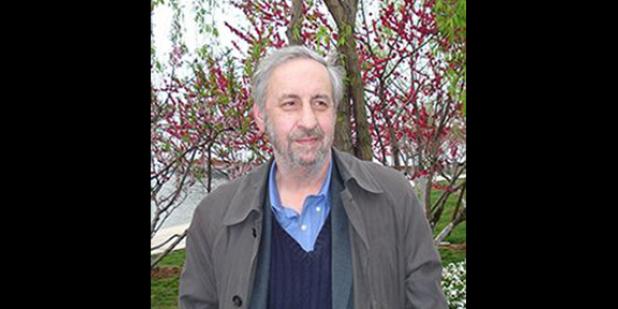Join us for a free one-day workshop for educators at the Japanese American National Museum, hosted by the USC U.S.-China Institute and the National Consortium for Teaching about Asia. This workshop will include a guided tour of the beloved exhibition Common Ground: The Heart of Community, slated to close permanently in January 2025. Following the tour, learn strategies for engaging students in the primary source artifacts, images, and documents found in JANM’s vast collection and discover classroom-ready resources to support teaching and learning about the Japanese American experience.
Returning to the High Tang
The Council on East Asian Studies at Yale University presents the 56th Edward H. Hume Memorial lecture with Stephen Owen.

Stephen Owen - James Bryant Conant University Professor, East Asian Languages & Civilizations and Professor of Comparative Literature, Harvard University
The “High Tang” is seen as the apex of classical Chinese poetry. But understand an era, we need to free it from the aging weight of its reputation. I will show that the received understanding of the High Tang (indeed the very term) was entirely the creation of the early thirteenth century, half a millennium after the fact. Then I will go back and look at the community that defines the “High Tang,” producing a system of values and a version of empire different from and in opposition to the imperial center and the oligarchy of families that controlled it. I will argue that this was not only the beginning of the “literati” as a distinct community, but that poetry was constitutive of that community.
Stephen Owen is the James Bryant Conant University Professor, and a member of the Department of East Asian Languages and Civilizations and the Department of Comparative Literature. Born in St. Louis in 1946, he received both his B.A. (1968) and Ph.D. (1972) from Yale University. After teaching for a decade at Yale in East Asian Languages and Literature and in the Literature Major, he moved to Harvard in 1982. At Harvard he served as chair of EALC and later of Comparative Literature. He has held a Fulbright and a Guggenheim Fellowship, and he is a member of both the American Academy of Arts and Sciences and of the American Philosophical Society. In 2005 he received the Mellon Distinguished Achievement Award. He is the author of twelve books on Chinese literature and comparative literature, the most recent being The Making of Early Chinese Classical Poetry (2006) and The Late Tang: Chinese Poetry of the Mid-Ninth Century (827-860) (2006). An Anthology of Chinese Literature: Earliest Times to 1911 (1996) was in 1997 as outstanding translation of the year by American Literary Translators Association. He has been the author of numerous articles, including the entry on “poetry” in the most recent edition of The Princeton Encyclopedia of Poetry and Poetics (2012). With the exception of the anthology and one book published in Chinese, the other ten of his books have been translated into Chinese, and he has been the subject of numerous studies in Chinese and one in English. He was the editor of the first volume of The Cambridge History of Chinese Literature (2010).
The lecture will be followed by a light reception.
Please RSVP to eastasian.studies@yale.edu by 10/29/15 if you plan on attending.
Featured Articles
Please join us for the Grad Mixer! Hosted by USC Annenberg Office of International Affairs, Enjoy food, drink and conversation with fellow students across USC Annenberg. Graduate students from any field are welcome to join, so it is a great opportunity to meet fellow students with IR/foreign policy-related research topics and interests.
RSVP link: https://forms.gle/1zer188RE9dCS6Ho6
Events
Hosted by USC Annenberg Office of International Affairs, enjoy food, drink and conversation with fellow international students.
Join us for an in-person conversation on Thursday, November 7th at 4pm with author David M. Lampton as he discusses his new book, Living U.S.-China Relations: From Cold War to Cold War. The book examines the history of U.S.-China relations across eight U.S. presidential administrations.




